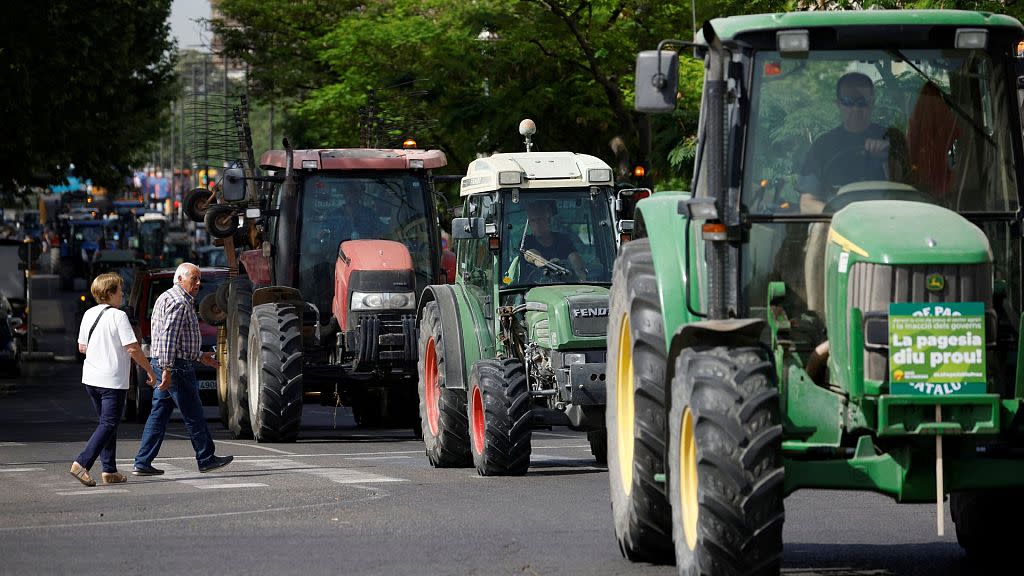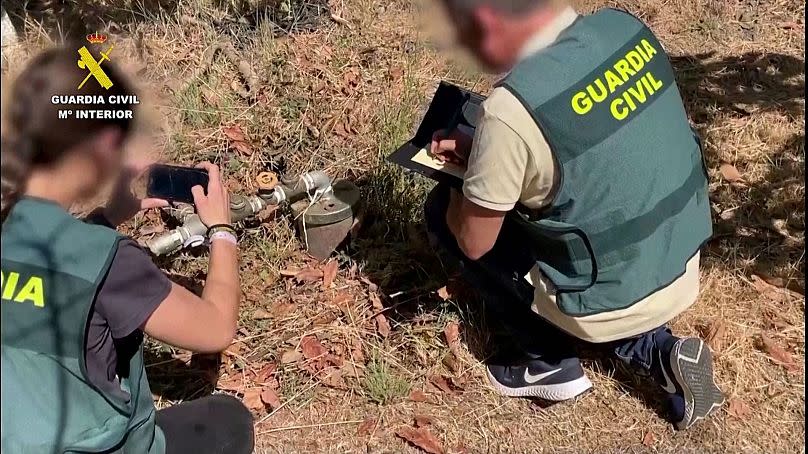Spanish fruit growers arrested for using illegal wells during long-term drought

Twenty-six people have been arrested for tapping illegal wells to grow tropical fruit in southern Spain, police said on Tuesday.
During a four-year investigation, authorities uncovered more than 250 illegal wells, bore holes and ponds in the Axarquia area in Andalusia. The region has been hit by drought since 2021.
Spain is Europe's biggest producer of tropical fruit, which requires large volumes of water. Producers estimate that avocado production will drop by 25 per cent this year due to high temperatures and a lack of water.
Why are Spanish fruit-growers being arrested?
The suspects are being investigated for misappropriation of public waters and alleged fraudulent use of water for irrigation of subtropical crops such as avocados and mangos, police said.
The gave no details on whether those arrested included commercial growers or subsistence farmers.
Spain is in a long-term drought. The lack of rain has put water management under the spotlight, particularly around the Donana wetland. The wildlife sanctuary is also in Andalusia and endangered by climate change and illegal irrigation in nearby strawberry farms.

'Not a one off': Scientists confirm 2022 was Europe's second warmest year and hottest summer ever
Water gaps: Where in Europe is most at risk of water shortages and what can be done about it?
Spain faced its driest, warmest April on record
Last month, Spain registered the driest and warmest April since records began, according to the national weather agency AEMET.
The average water level in reservoirs in Catalonia and Andalusia - the worst hit areas - stands at around 25 per cent.
In Catalonia, in northeastern Spain, farmers staged a go-slow protest in their tractors in several cities on Tuesday, demanding government help to deal with the impact of the drought.
Farming union Unio de Pagesos is pushing authorities to provide subsidies as well as tax and labour incentives and emergency network improvements to guarantee a minimum supply of water for farmers.
Farmer Josep Andreu Cortina, 35, told news agency Reuters that he expected only around two per cent of his produce to be fit for sale this year due to the scarcity of water.
Authorities "are not taking measures to help the sector deal with the drought", he said during a protest in the town of Lleida, around 150 km from Barcelona.

 Yahoo News
Yahoo News 
